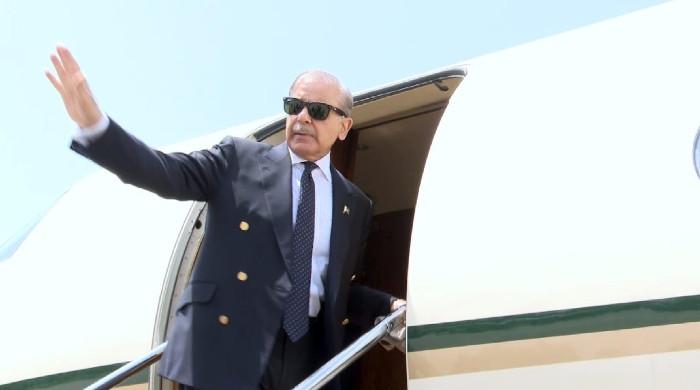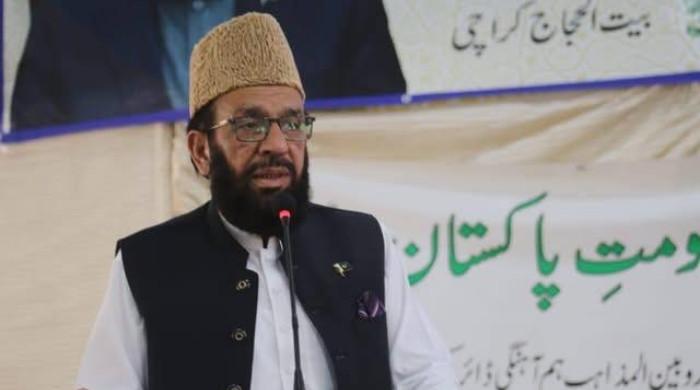JuD chief Hafiz Saeed, 37 others placed on Exit Control List
The move come two days after Saeed and four others were placed under house arrest
February 01, 2017
ISLAMABAD: Pakistan has imposed international travel ban on Jamaat ud Dawa (JuD) chief Hafiz Saeed and 37 activists of his organization which is accused of working as a front for the defunct Lashkar-e-Taiba.
In this regard ministry of Interior has placed names of Jamaat-ud-Dawa chief Hafiz Saeed among 38 others on the Exit Control List, two days after he was placed under house arrest.
The ministry has forwarded letters to all provincial governments and the Federal Investigation Agency, which included names of all 38 individuals placed on the ECL.
All of them were said to be affiliated with JuD or Lashkar-e-Taiba. On Monday, authorities had placed Hafiz Saeed under house arrest along with four other individuals, namely Abdullah Ubaid, Zafar Iqbal, Abdur Rehman Abid and Qazi Kashif Niaz.
In a notification, the Ministry of Interior said it had "placed Falah-e-Insaniat Foundation (FIF) and Jamaat-Ud-Dawa (JUD) on the Watch List as per UNSC 1267 Sanctions and have listed these organizations in the Second Schedule of the ATA 1997 (as amended)."
"Hafiz Muhammad Saeed, Abdullah Ubaid, Zafar Iqbal, Abdur Rehman Abid and Qazi Kashif Niaz are reportedly active members of the aforementioned organizations within the meaning of Section 11EEE(1) of the ATA 1997 (as amended)," said the ministry.
"As such, they must be placed under preventive detention," it said.

Police took Saeed away from a mosque in Lahore late Monday and escorted him to his residence where they are said to be holding him under house arrest.
Saeed, however, told reporters that he would challenge his detention in court.
"My detention orders are unlawful and we will challenge them in the court," Saeed told reporters before he was led away by police.
'Policy decision'
The ministry's detention order surfaced hours after Interior Minister Chaudhry Nisar hinted that a crackdown was imminent.
He told reporters in Islamabad on Monday that, given the group had been under observation for years and was blacklisted internationally, Pakistan was "under obligation to take some action".
Following the house arrest, the military's media wing clarified that the decision to place restrictions on the JuD chief was a policy decision.
"This was a policy decision taken by the state in the national interest and several institutions will have to play their role. This news came yesterday and in the coming days more details will be available," DG ISPR Major General Asif Ghafoor told reporters at a press conference on Tuesday.
Gen Ghafoor said there was no foreign pressure behind the decision and it was taken in the national interest.











